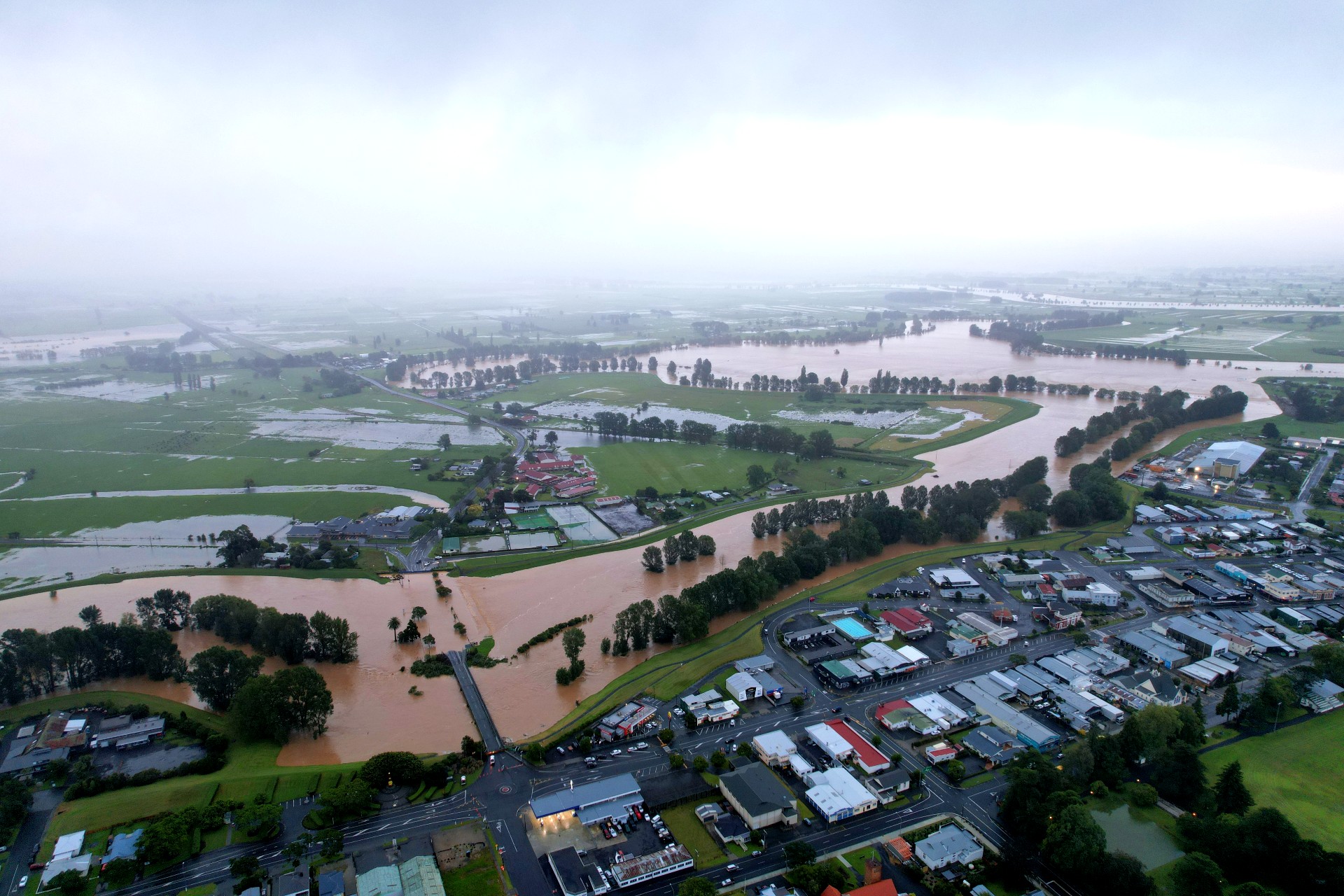Te Whatu Ora Public Health Unit for Waikato has listed safety tips for residents who have become affected by flooding:
If your property was flooded it’s important to drain, dry and clean it up as quickly as possible:
- Floodwater can contain lots of nasty bugs and hazards which can contaminate your home and the things in it
- Getting everything cleaned up and decontaminated safely will reduce the risk of you and your whānau getting gastro (tummy bugs) issues, as well as skin and eye infections
- Drying out your property and belongings also prevents mould growing in your home. Removing waste and debris and clearing stagnant water will also prevent other health issues occurring
- If you have contact with flood water, flooded property or items contaminated with flood water, you should wash your hands with soap and water and dry them thoroughly afterwards. You should also do this after going to the toilet and before preparing or eating any food
Before cleaning up
- While it is important to drain, dry and clean your property as soon as possible, you should also make sure it is safe to enter and you are suitably protected.
Building safety and preparations:
- Do not enter your property if you’re told it’s unsafe
- If your gas metre has been affected by water or debris, contact your gas supplier before entering your property
- Keep children and animals away from flooded areas until they have been cleaned and made safe
- Contact your insurer and landlord before you start work
- Take photos and videos of the damage and anything that needs to be thrown away before starting the clean-up, for insurance purposes and in case you need to show your property manager or landlord
Personal safety:
- Before you start cleaning up you should put on protective clothing and ensure you have suitable gear
- Wear rubber gloves, sturdy footwear, a long-sleeved top and trousers
- Put on a face mask (such as blue surgical mask used for COVID-19)
- Cover any cuts and grazes you may have to avoid infection
- Ensure you have a shovel to remove any debris and sewage from your property, and use bin bags for waste
- Avoid bringing footwear and clothing into the house that has been in contact with waste and debris, until it has been thoroughly disinfected
Drying out your property:
- If you are drying your property naturally, keep doors and windows open as much as possible. You can also turn heaters on to help
- If using dehumidifiers or air conditioning, close external doors, and windows
- Check for trapped water and mud in wall cavities, as well as under shower trays, baths, benches and bottom shelves
- Remove and discard contaminated household materials that cannot be cleaned or disinfected, such as mattresses, carpet and children’s soft toys
- You may also need to remove skirting boards and cut out softened plaster board
Mould:
- If mould has developed on surfaces, take extra care when cleaning to reduce the risk of infection. Wear protective clothing, including a mask and gloves
- Clean the mould off as soon as possible
- Use soap and water to clean the surface then apply a commercial mould product or household bleach solution
- For large areas you may need to call in a mould removal specialist
- Redecorating should be delayed for at least three months after any repairs to prevent the risk of mould being covered

Food safety:
- Throw away all food and drinking water that has come in contact with floodwater, including things stored in containers. Place food waste in bin bags to avoid attracting rats, mice and flies
- You can keep food that has been in tins, but make sure the outside of the tin is thoroughly cleaned and decontaminated
- Ensure all kitchen utensils and food preparation surfaces are clean before use. Rinse thoroughly in safe water, then disinfect by immersing for one minute in a plain, unperfumed household bleach solution. Rinse again in safe water. Alternatively, boil all utensils for one minute and let cool
- Do not eat garden produce if the soil has been flooded. Clean up and remove debris and sprinkle gardens with garden lime, if available
- Do not eat shellfish from the river mouth or harbour after a flood
Appliances (fridges, freezers, and electrical goods):
- Do not use electrical products if they have been soaked in water. If unsure, throw them out
- Get rid of all foods needing refrigeration when they have been unrefrigerated for more than two hours
- If the power has been off to the freezer for more than two days, get rid of all thawed food
Cleaning indoors:
- Take out everything that is wet and that can be moved – floor coverings, furniture, bedding, clothing, etc. Thoroughly wash and disinfect all items and dry in the sunshine. Throw away anything that cannot be decontaminated
- Clean and disinfect all contaminated areas with hot water and detergent, then disinfect with a household chlorine bleach solution
- Clean children’s toys that have come into contact with floodwater in household bleach solution, rinse in clean water, then let dry
- Disinfect cleaning mops, brooms and brushes with the bleach solution
- Wash your hands and any affected parts of your body with soap and water after you have finished
- Scrub hard surfaces with clean water and dishwashing liquid to remove all visible dirt. Then wipe down with a household disinfectant bleach solution
Cleaning basement areas:
- Check all floor drains in the basement to see that they are clear of debris and drain away water under the house. Try to increase the airflow to speed drying
- Drain any surface pools by pumping or bailing
- Ventilate area by opening all windows or use fans (if power is available)
- Use household bleach in water to rinse down walls, floors and other equipment. Leave on for 30 minutes before rinsing with clear water. Keep windows open during this treatment
- Use plenty of hot water and soap or dishwashing detergent for the final clean-up of walls, floors, cupboards
- Wash or flush down walls, shelves and floors with clear water and sweep to remove contaminated water and sediment
- Use a commercial deodoriser to remove any remaining smells
Outside areas:
- Remove solid materials (sanitary products, toilet paper and faecal matter) and place in sealed bags to avoid attracting rats, mice and flies. Use a shovel if available
- A garden hose is useful for washing down the outside of the property to remove silt, salt deposits and fine debris. Do not use high-pressure hoses as they can blast contaminated matter into the air. Garden lime can be used to help disinfect the area
- Drain standing pools of water and empty containers like buckets to reduce the risk of bacteria forming and mosquitos breeding
- Hard surfaces such as patios and concrete paths can be cleaned and disinfected with bleach solution
- Minimise how much you disturb the items in any skips to avoid shaking up dust and dirt
For more information visit: health.govt.nz/floods




